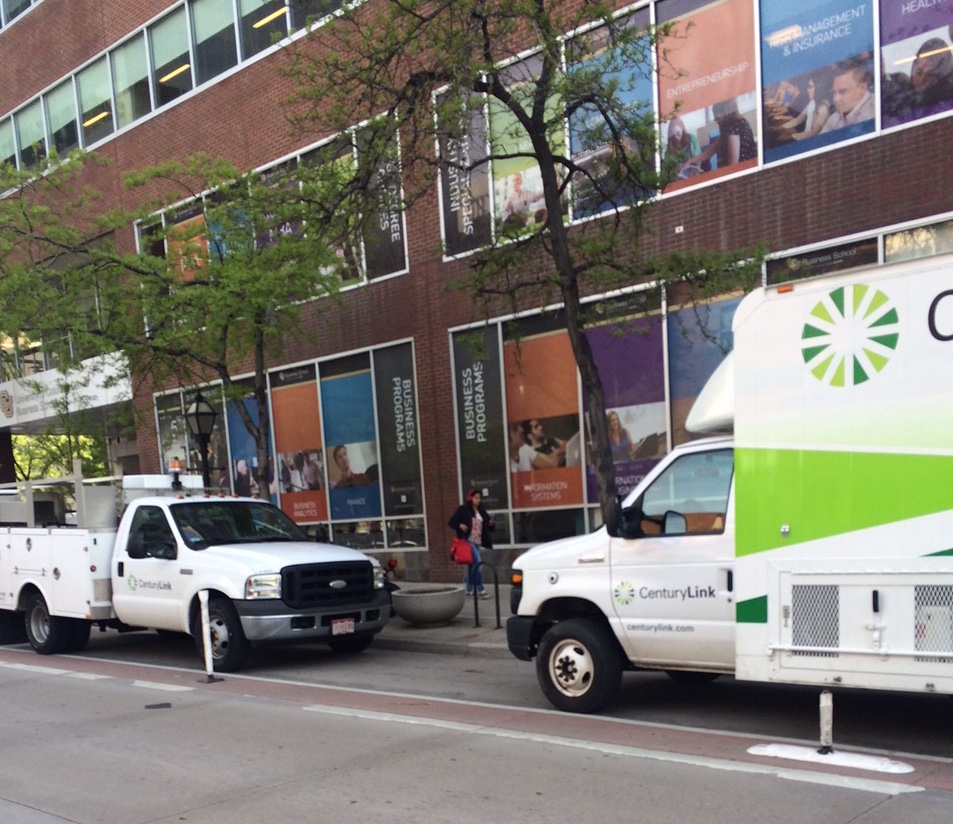Denver Police and DPW Pass the Buck on Bike Lane Enforcement
It’s clearly against the law for motor vehicle drivers to obstruct a bike lane in Denver, but no city agency is making enforcement a priority.

Cars and trucks parked in bike lanes are a consistent problem, so Streetsblog Denver wanted to find out how many tickets have been written for obstructing bicyclists’ right to the lane. Multiple ordinances in Denver’s municipal code establish that parking or driving in a bike lane warrants a ticket. Here is the clearest one:
Whenever a lane of traffic on any street or highway is indicated by pavement marking or by a sign, as being assigned solely as a bicycle lane, it shall be unlawful for the driver of a vehicle to occupy such lane for moving or parking, except that a driver may cross such lane to make a lawful turning movement yielding the right-of-way to bicyclists occupying such lane.
A spokesperson for the Denver Police Department said that police “don’t usually” cite drivers unless there’s a complaint, and that the Department of Public Works Right of Way Enforcement agency (those white vans and Jeep Wranglers you see stalking parking meters around the city) is responsible for writing such tickets.
A DPW spokesperson, though, said the agency doesn’t have the power to enforce the above law. Its jurisdiction falls under more general ordinances against blocking traffic. For example, DPW wrote 974 tickets last year for drivers obstructing traffic. But the department does not keep readily available records tracking how many of those tickets were for blocking bike lanes. (Following a Colorado Open Records Act request, a DPW spokesperson said staff will have to manually sift through tickets to find the answer, at a cost to Streetsblog of $30 per hour.)
The police department is the agency responsible for enforcing the law that most clearly protects a bike rider’s right to a clear lane, according to DPW. That’s right, the same police department that said it’s DPW’s job to keep bike lanes clear.
So Denver has a rule, sure, but it doesn’t have an agency willing to be accountable for enforcing that rule. In practice, this means tickets for blocking bike lane only get issued after it’s too late.
“I typically see this stuff enforced when there’s a bike accident, when you’re trying to see who’s at fault,” said Brian Weiss, a Denver attorney who specializes in bicycle law.
Doesn’t that defeat the purpose of the law, which is to get vehicles out of the bike lane before anyone gets hurt?


